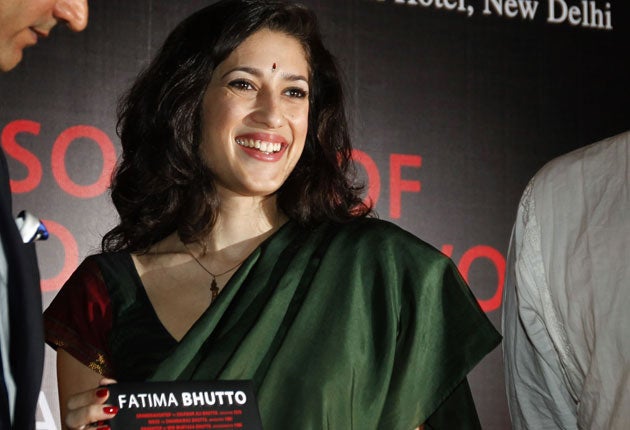Cultural rebirth as Kashmir holds its first literary festival
Arts lovers hope event will turn the focus from politics to books in region plagued by conflict

Your support helps us to tell the story
This election is still a dead heat, according to most polls. In a fight with such wafer-thin margins, we need reporters on the ground talking to the people Trump and Harris are courting. Your support allows us to keep sending journalists to the story.
The Independent is trusted by 27 million Americans from across the entire political spectrum every month. Unlike many other quality news outlets, we choose not to lock you out of our reporting and analysis with paywalls. But quality journalism must still be paid for.
Help us keep bring these critical stories to light. Your support makes all the difference.
Kashmir, the region over which India and Pakistan have come to blows on three occasions in the past 60 years, is to hold its first literary festival in an attempt to aid the area's cultural renaissance.
After a largely peaceful summer in an area frequently plagued with clashes between protesters and security forces, writers and arts lovers will descend upon Srinagar at the end of September for the Harud ("autumn") Literary Festival.
"The idea was brought to us by a group of local people involved with cultural events and education in Kashmir. The idea was to create a platform for the arts in Kashmir," said Sheuli Sethi, of Teamwork Productions, the Delhi-based company overseeing the festival.
The list of writers and artists taking place is due to be announced this week. Among those whose participation is confirmed is Rahul Pandita, a writer and journalist from a Kashmiri Hindu family who were among countless thousands forced from the valley in the early 1990s when a separatist insurgency – and a subsequent crackdown by security forces – gathered pace.
Others likely to be taking part include Basharat Peer, who wrote the memoir Curfewed Night, Mirza Wahid, who wrote The Collaborator, and another Kashmiri Hindu writer, Siddhartha Gigoo, whose work The Garden of Solitude was recently published. The Pakistani writer Fatima Bhutto is among those believed to have been invited. A report in The Times of India suggested the Booker prize-winning Salman Rushdie "might drop by", though the organisers say he has not been approached.
The violence in Kashmir, which turned the valley into one of the most heavily militarised places on the planet and has cost perhaps more than 70,000 lives, has also led to a flurry of new writing. Mr Pandita, whose book on India's Maoist insurgency, Hello, Bastar, was published earlier this year, is currently working on a memoir about his youth in Kashmir.
"I think the festival is a good thing for two reasons. Normalcy is slowly and gradually returning. When a society is ready to talk about literature it shows some normalcy has returned," he said. "Second, there are so many young people with stories to tell. It will be a catharsis for them to have a chance to tell their stories. I think it could be an important step."
The event is being organised by the people behind the widely celebrated literary festival in the Rajasthani city of Jaipur. They have stressed the involvement of local writers and artists who use local languages as well as English.
"The idea is to create a vibrant platform for writing from the [Kashmir] valley, Ladakh and Jammu. Poetry, prose and non-fiction will be the focus," said Ms Sethi. Asked about security, she said: "Safety is always a concern in any place in the world today. While we will be taking the usual precautions, we are convinced that events and platforms of this nature will create an atmosphere which will be harmonious and supportive."
The Kashmir valley has long inspired writers and poets. Victoria Schofield, a British writer and author of the history Kashmir in the Crossfire, is another of the names that has been associated with the forthcoming event. She said: "Kashmir has a very deep literary history; it is not a recent development."
She pointed to the Rajatarangini, or the saga of the kings of Kashmir, a work written in Sanskrit by a 12th-century Kashmiri. "This was translated by Nehru [India's first prime minister]," she said. "A festival will help get us away from talking about nothing but politics."
Join our commenting forum
Join thought-provoking conversations, follow other Independent readers and see their replies
Comments